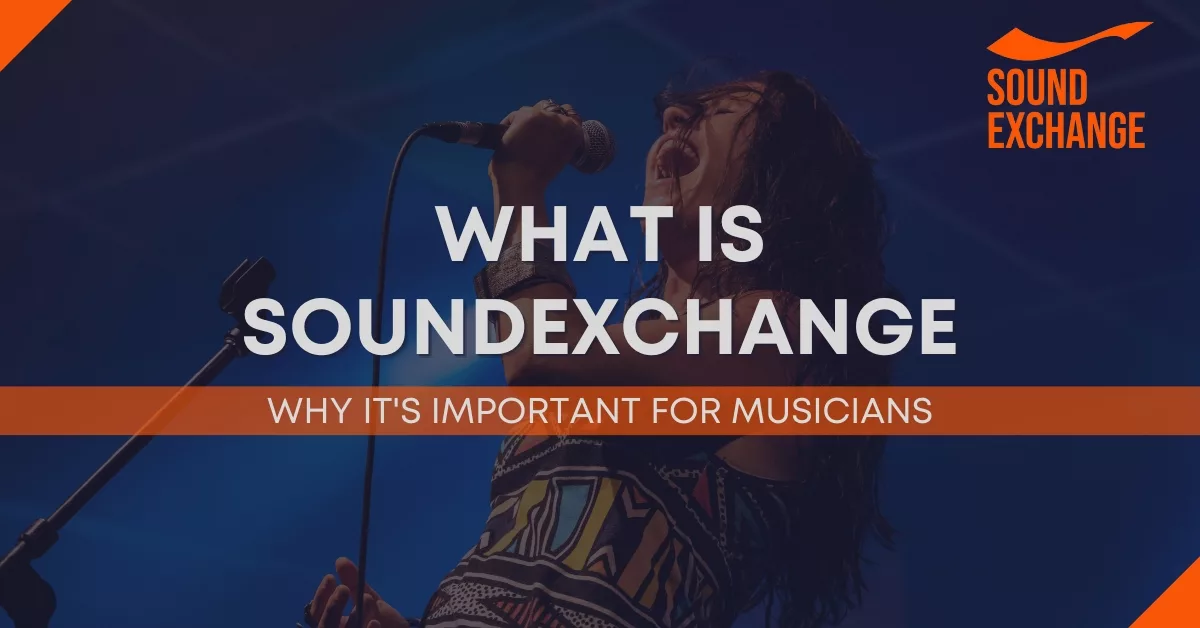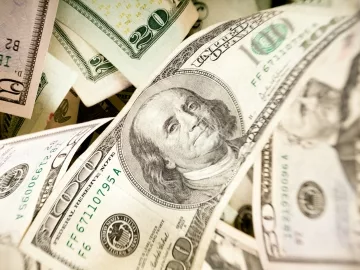
As a musician, you know how important it is to receive the royalties you're owed for your hard work. However, collecting these royalties can sometimes be a difficult and complex process. That's where SoundExchange comes in. In this blog post, we'll give you an overview of SoundExchange and why it's an important organization for musicians.

SoundExchange is a non-profit organization that was established in the United States in 2003. Its primary function is to collect and distribute digital performance royalties for sound recordings from non-interactive digital music services like satellite radio, webcasting, and cable television music channels.
SoundExchange collects royalties from these digital music services and distributes them to the performers, sound recording copyright owners, and featured artists. This ensures that the music creators are compensated when their recordings are played on these platforms.
SoundExchange is regulated by the Copyright Royalty Board, which sets the royalty rates that digital music services must pay for the use of sound recordings. The organization has distributed billions of dollars in royalties to recording artists, record labels, and rights holders since its inception.
Digital performance royalties are royalties paid to the rights holders of sound recordings for the use of their recordings on digital platforms, such as internet radio, satellite radio, and cable television music channels. These royalties are paid for the public performance of sound recordings, which includes any digital audio transmission or retransmission of the recordings to the public.
Digital performance royalties are collected strictly by SoundExchange, who acts as intermediaries between the rights holders and the digital music services. They collect the royalties from the digital music services, and then distribute them to the rights holders based on the terms of the relevant licenses and agreements.
The rights holders who are eligible to receive digital performance royalties include the sound recording copyright owner, featured artists, and non-featured musicians and vocalists who contributed to the recording. The royalties are typically distributed on a pro rata basis, based on the number of plays that each recording receives on the digital platform.
SoundExchange collects royalties from non-interactive digital music services that use sound recordings. These services include:
Satellite radio: SiriusXM
Internet radio: Pandora, iHeartRadio, and TuneIn
Webcasting: Alpha Media, JB Media Group, and thousands of others
Cable and satellite television music channels: Music Choice and MTV
Business establishments: Bars, restaurants, and stores that play music publicly through digital music services
SoundExchange also collects royalties for the use of sound recordings on digital radio services that are part of cable and satellite television packages.
The More You Know: SoundExchange does not collect royalties for the use of sound recordings on interactive streaming services like YouTube or on-demand music services like iTunes, as the licensing for these types of services is handled through direct agreements between the rights holders and the services.

The amount that SoundExchange pays out in royalties varies depending on a number of factors, including the number of plays of each recording, the rates set by the Copyright Royalty Board, and the terms of the relevant licenses and agreements.
The rates set by the Copyright Royalty Board for non-interactive digital music services are typically based on a percentage of the service's revenue or a per-performance rate. For example, in 2021, the per-performance rate for non-subscription webcasters is $0.0022 per play, while the per-performance rate for subscription services is $0.0028 per play.
The royalties paid out are split amongst three parties; rights owners, featured artists, and non-featured artists. The rights owners get 50%, featured artists get 45%, and non-featured artists get 5%. Session musicians and backup players are considered non-featured artists
The More You Know: It's important to note that the amount of royalties that any individual rights holder receives from SoundExchange can vary widely depending on the popularity and success of their recordings on digital platforms.
Related Article: How Much Does Spotify Pay Per Stream? Is The Payout Fair?
SoundExchange collects and distributes digital performance royalties as far back as 3 years. After the 3 years is up, unclaimed royalties are released due to regulations. It is important for you to signup if you have had music released during this timeframe to ensure you get the money you are owed. Every penny counts in this business!
It's important to note that royalties paid out by SoundExchange and music publishing are completely different. They go to two different groups of music creators and for different use cases. Let's first discuss SoundExchange.
SoundExchange collects performance royalties paid for the use of a sound recordings on non-interactive digital music services. These royalty payments are separate from the publishing royalties paid to songwriters and publishers for the use of their musical compositions.
Music publishing royalties, on the other hand, are paid to songwriters and publishers for the use of their musical works. These royalties are collected and distributed by performing rights organizations (PROs) such as ASCAP, BMI, and SESAC. They are paid for the public performance, mechanical reproduction, and synchronization of musical compositions.
Related Article: Music Sync Licensing: How To Make Money From Your Music

To put it simply, every musician should register with SoundExchange. It doesn't matter if you are registered with your distributor for streaming royalites or music publishing, as you've learned earlier, those royalties are different. Let's look at 4 important reasons why a musician should register with SoundExchange.
Firstly, by registering with SoundExchange, musicians can ensure that they are receiving their fair share of royalties for their digital performances, including plays on streaming platforms like Pandora, SiriusXM, and iHeartRadio. SoundExchange collects and distributes these royalties on behalf of rights holders, ensuring that they are compensated for their work.
SoundExchange has an extensive database of sound recordings and their associated metadata. This makes it easier for musicians and their teams to track and manage their digital sound recording performances. This can save musicians time and effort when it comes to collecting and reporting on their earnings from digital performances.
Registering with SoundExchange is free and relatively simple. It can be done online in just a few steps. Once registered, musicians can start receiving royalties from their digital performances almost immediately.
Finally, by registering with SoundExchange, musicians are supporting an organization that is committed to promoting fairness and transparency in the music industry. SoundExchange works to further music licensing reform and ensure that all rights holders are paid fairly for their work, regardless of their size or status within the industry. By registering with SoundExchange, musicians can help to create a more equitable and sustainable music industry for themselves and future generations of artists.
In this what is SoundExchange article, we've learned that they are a vital organization in the world of music, ensuring that artists and rights holders receive the royalties they deserve for their digital performances. With its cutting-edge technology and extensive database, SoundExchange has become an indispensable tool for anyone involved in the music industry.
Through its work, SoundExchange has helped to create a more equitable system of compensation for artists and their work, and has made it possible for creators to continue to pursue their passion and share their music with the world.
As the digital landscape continues to evolve, SoundExchange's role in the industry will only become more important, and its commitment to fairness and transparency will continue to be a driving force for change.
"Some of the links within this article are affiliate links. These links are from various companies such as Amazon. This means if you click on any of these links and purchase the item or service, I will receive an affiliate commission. This is at no cost to you and the money gets invested back into Audio Sorcerer LLC."